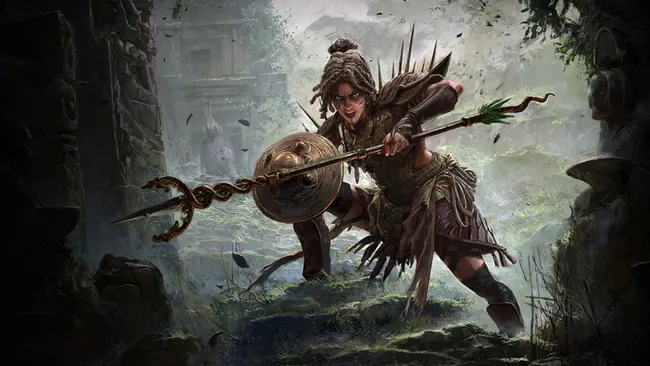About Path of Exile
Path of Exile is an immersive action RPG (ARPG) developed and published by Grinding Gear Games. Garnering recognition with a BAFTA nomination for the Evolving Game award, the game has cultivated a dedicated and thriving player base.
What Is POE Currency?
POE Currency consists of various items used within the game for crafting, enhancing equipment, and restructuring passive skill trees. It serves as both the medium and backbone of transactions in Path of Exile.
For seasoned players, acquiring POE Trade Currency is a seamless process, whether through quest completion, looting from monsters, or obtaining it from vendors—these are all effective methods of collecting currency.
POE Trade is integral to gameplay, as it is widely utilized for purposes such as leveling items, modifying Atlas maps, and more. Simply put, buying POE Currency expands your adventure, making it an indispensable tool for progression.
POE Exalted Orb An Exalted Orb is a rare and valuable currency item in Path of Exile, primarily used to add a new random affix to rare equipment.
- Usage Recommendations: Exalted Orbs are best utilized by experienced players since maximizing their potential requires crafting powerful affixes. For beginners, selling Exalted Orbs for simpler POE Currency may be a more worthwhile option.
- Popularity in POE 2: While Exalted Orbs had limited appeal in the original game, POE 2 has revitalized them, making them one of the sequel’s most sought-after currency items.
POE Regal Orb Regal Orbs transform Magic Gear into Rare items while retaining the original modifiers and adding a new random affix.
- Ideal Uses: The most suitable items for Regal Orb usage include Maps and Strongboxes, as their additional affixes generate extra rewards and effects.
- High-Level Transactions: Regal Orbs can also be used to acquire valuable Skill Gems, which significantly contribute to creating powerful builds.
POE Divine Orb A Divine Orb allows players to re-roll the values of random explicit modifiers on a piece of equipment.
- Availability: Divine Orbs are highly rare and can be obtained from monster loot, chests, destructible containers, Arcanist's Strongboxes, or by selling six-linked items to vendors.
- Mechanics: The orb re-rolls values within the current tier of an affix but does not change the affix’s tier itself.
- Limitations: Using Divine Orbs on unique items maintains their style variant but re-adjusts the affixes to align with the new value range.
Mirror of Kalandra The Mirror of Kalandra is one of Path of Exile’s most prestigious currency items, capable of creating mirrored copies of non-unique items.
- Value: Due to its rarity and ability to duplicate items with perfect stats, it is a prized possession in the in-game economy.
- Acquisition: Its drop rate is exceptionally low, and it cannot be obtained through vendors or crafting.
- Trade: The Mirror of Kalandra often serves as currency in high-value trades, representing wealth and power within the POE community.
POE Chaos Orb Chaos Orbs are widely utilized for re-rolling modifiers on rare items and are considered the "silver standard" in the player-driven economy. They are essential for crafting and acquiring mid-tier equipment from reliable sellers.
How to Farm Divine Orbs? Divine Orbs are among the rarest currencies in Path of Exile, dropped by monsters, chests, and containers, with additional sources such as Arcanist's Strongboxes and beastcrafting recipes. However, these methods offer low drop rates, enhancing their rarity.
- Vendor Recipe Alternative: Divine Orbs can be obtained through specific formulas, such as downgrading Mirrors of Kalandra. However, due to the Mirror’s high value, this method is rarely advisable.

































